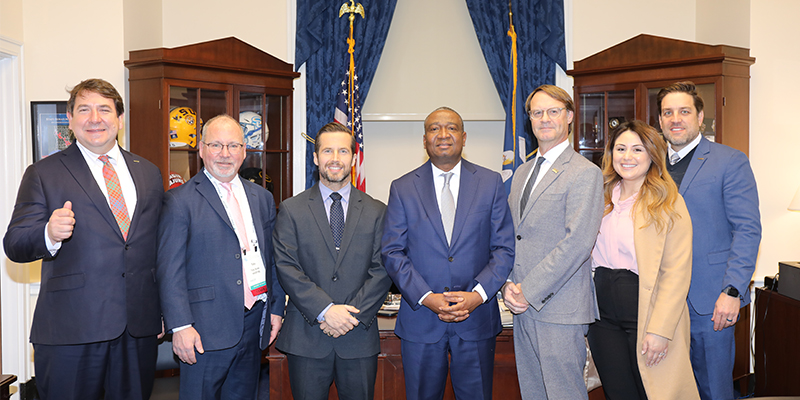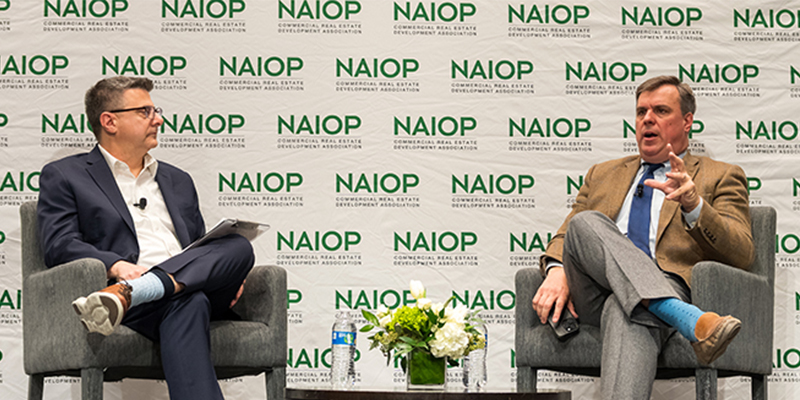Pressure to satisfy environmental, social and governance (ESG) goals among companies in the commercial real estate sector has intensified during the COVID-19 pandemic, according to panelists at CRE.Converge.
External pressure is building as local governments establish environmental benchmarking ordinances. But even where regulatory demands and tenant awareness are lacking, boards and investors are asking their firms to do more. “A lot of it is internal,” said Leslie Moore, senior vice president and director of ESG and corporate operations for LXP Industrial Trust. “Certain investors really push for it.”
“We don’t have a lot of pressure from our tenants to adopt sustainability as much as I’ve seen in the office sector,” said Rielle Green, director of ESG for Acadia Realty Trust, a retail REIT. “That’s coming from our investors and board. They ask, ‘What is our strategy? Are we in line with our peers?’”
Sustainable and Social
Encompassing environmental sustainability; diversity, equity and inclusion (DEI); and corporate policy, ESG offers companies a broad range of goals to tackle. Asked to identify their immediate priorities, panelists pointed to carbon emission reductions and eventually, carbon neutrality.
“The environment is the foundation of everybody’s ESG program,” said Keara Fanning, senior director of ESG for Link Logistics Real Estate. “For us, [the priority is] to use data to drive the decisions we make,” including reducing carbon emissions and making a best-in-class program for customers to leverage.
While the environment garners considerable attention, social goals are also taking center stage right now, panelists said, in part due to the COVID-19 pandemic’s impact on wellness. “It’s important to look at DEI internally,” Green said, “while also looking at our vendors and the social causes we support.”
Talking to Tenants
Advancing sustainability goals can be a challenge in a triple-net lease environment, panelists said, since it often requires tenants to share proprietary data on energy usage and other operational information.
“ESG is a scary acronym, and that’s why people don’t want to give us much information,” said Lindy Schrik, director of ESG for CenterPoint Properties. “Letting them know where we’re starting and where we’re trying to get to has helped.”
“One of the things we’re doing is making sure we upgrade language on every new lease,” Moore added. “That doesn’t solve all of the problems, because sometimes tenants will just sign the lease and then not provide the data.” A smart meter program will soon help LXP Industrial Trust track energy usage more accurately.
One argument for sustainability is that tenants may be able to pay less for business insurance if they demonstrate efforts to mitigate climate change. Link hired a set of temporary workers to educate its more than 7,000 tenants about goals such as these.
“Even with that, we’re only at 50%,” Fanning said. “It just seems like it’s somebody else’s problem, but if we continue to see municipalities’ benchmarking ordinances come through, it is going to be everybody’s problem.”
Measuring Up
Global ESB Benchmark (GRESB) standards can provide a foundation for initial and ongoing ESG efforts. The framework offers companies a tool to examine all aspects of ESG policies and compare them to corporate peers.
“I think it’s the No. 1 one way to really show investors how we’re performing,” Fanning said. “It’s not the end-all, be-all, but it’s a starting point. It’s a way for me to say, ‘I need you to do X, because this is going to improve things for us by this much.’”
ESG performance is starting to influence acquisitions; more potential buyers are asking for data before making an offer. But while most investors appreciate transparency, some are “waiting for regulation to do the job for them,” said moderator Breana Wheeler, director of operations for BREEAM USA.
“Don’t let perfection get in the way of progress,” Fanning said. “This isn’t a perfect world, especially when it comes to ESG data. It’s constantly evolving, but you have to at least measure yourself against a proper framework.”
Getting Started
What kind of staffing a company can dedicate to championing ESG goals varies. Depending on the organization’s size, a single person may be responsible for benchmarking, developing targets and creating the programs needed to move forward.
“Hire a consultant if you’re a smaller company,” Moore advised. “We hired a consultant, and in four months, we reported to GRESB. We never could have done that without their help.”
Make ESG objectives achievable, and revisit them frequently to build upon any progress realized. Getting buy-in from investors and clients is critical; implementation must be a companywide and collaborative process to succeed.
“People really do care,” Fanning said. “What you’re up against is this preconceived notion that you’re just trying to do the right thing – which we are. But from the pure, operational expense/savings [standpoint], you should be able to make the case quite easily for why you should do these things.”

This post is brought to you by JLL, the social media and conference blog sponsor of NAIOP’s CRE.Converge 2022. Learn more about JLL at www.us.jll.com or www.jll.ca.








